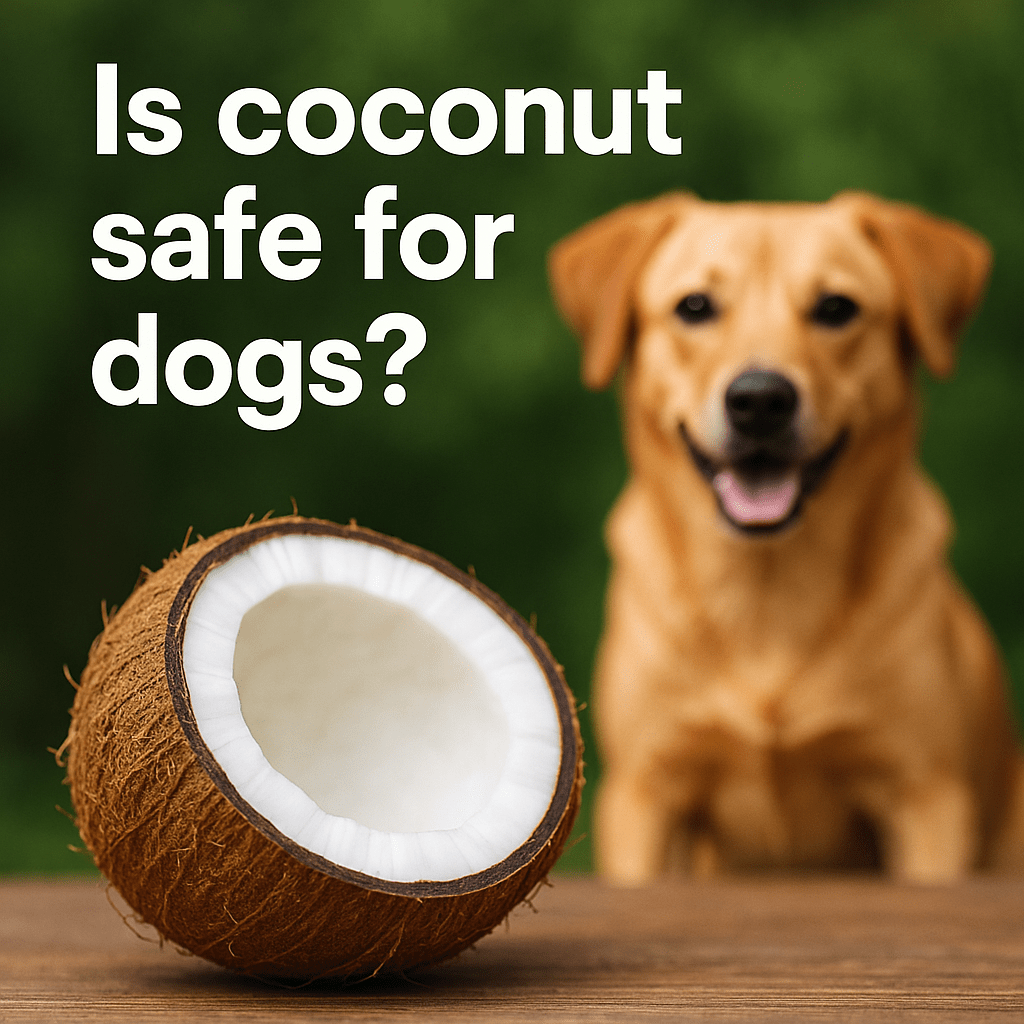
Can Dogs Eat Coconut? What Every Pet Parent Should Know
Share
At Ultimate Pet Foods, we often hear owners asking whether certain human “superfoods” are safe for their dogs. One ingredient that pops up time and time again is coconut. From coconut oil to dried coconut flakes, this tropical food is everywhere in the health world. But is coconut safe for dogs — and should you be adding it to their bowl? Let’s dive in.
Is Coconut Safe for Dogs?
The short answer is yes — in moderation. Coconut is not toxic to dogs and can actually provide some health benefits when fed correctly. However, like any new food, it’s important to understand the pros, the cons, and the right way to introduce it.
The Potential Benefits of Coconut for Dogs 🥥
-
Supports Skin & Coat Health
Coconut contains medium-chain triglycerides (MCTs), a type of healthy fat that may help keep your dog’s skin hydrated and their coat glossy. -
Anti-Inflammatory Properties
Some studies suggest coconut oil may help reduce inflammation, which could be beneficial for dogs with joint stiffness or itchy skin. -
Boost for the Immune System
Coconut has natural antimicrobial and antifungal properties, which may support your dog’s immune system. -
Great for Treat Recipes
Coconut flakes or small amounts of coconut oil can be used in homemade dog treats for an extra flavour boost.
The Things to Watch Out For ⚠️
-
High in Fat
Coconut is rich in fat, which means too much can lead to weight gain or even trigger pancreatitis in dogs that are sensitive. -
Digestive Upset
Giving large amounts at once may cause loose stools, bloating, or tummy discomfort. -
Choking Hazard
Hard coconut shells should never be given to dogs — they can damage teeth or cause blockages.
How to Safely Feed Coconut to Your Dog
-
Start Small: Introduce just a teaspoon of coconut oil or a small pinch of dried coconut to see how your dog reacts.
-
Choose the Right Form:
-
Unsweetened coconut flakes
-
Virgin coconut oil (not hydrogenated)
-
Coconut water (in very small amounts, without added sugar)
-
-
Avoid: Sweetened coconut, coconut cream (very fatty), and the hard shell.
-
Frequency: Coconut should be seen as an occasional treat, not a daily diet staple.
Should Coconut Be Part of a Dog’s Everyday Diet?
While coconut has some great health benefits, it doesn’t replace the essential proteins, vitamins, and minerals found in a complete and balanced dog food. At Ultimate Pet Foods, we focus on ingredients scientifically proven to support your dog’s digestive health, joint care, and overall wellbeing. Coconut can be a fun, tasty extra — but not the main event.
Final Thought 🐶❤️
Coconut is safe for most dogs when fed in moderation. It can support skin, coat, and immune health, but remember — too much of a good thing can cause tummy upsets. If you’re ever unsure, always check with your vet before adding something new to your dog’s diet.
Ready to Try Science-Backed Nutrition? Request Your Free Sample Today 🐶
At Ultimate Pet Foods, we don’t include coconut in our recipes — instead, we focus on a carefully selected blend of other proven superfoods that deliver real benefits for your dog’s health. From antioxidant-rich berries to omega-packed salmon oil and joint-supporting green-lipped mussel, every ingredient is chosen with purpose. Our goal is to give your dog a complete, balanced diet that supports digestion, immunity, skin, coat, and joints — without relying on trendy extras. Because when it comes to your dog’s bowl, we believe in science-backed nutrition, not fads.
